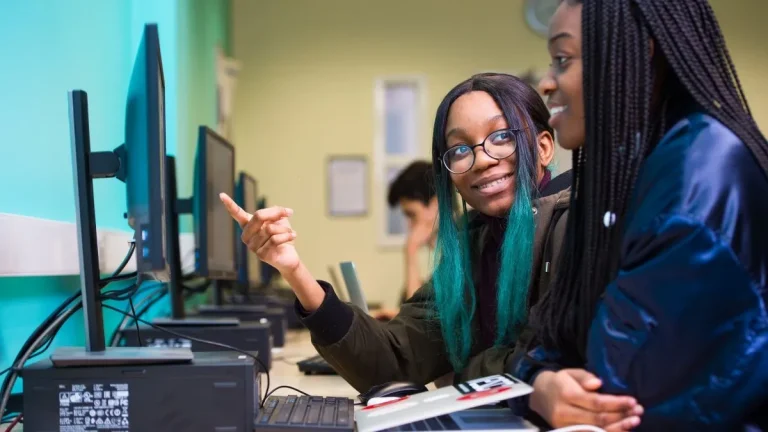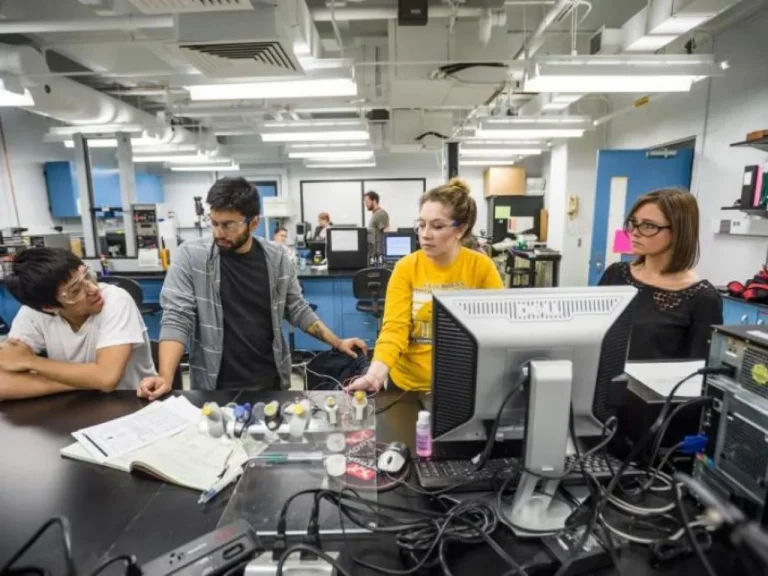Is Magic Really Just Science We Don’T Understand Yet?
The concept that ‘magic is science we don’t understand yet’ suggests that mystical, unexplained phenomena may have rational scientific explanations that could be unlocked with more advanced knowledge.
In short: Throughout history, many aspects of nature that seemed magical found scientific explanations as our understanding of the world progressed. However, true magic may exist outside the realm of science’s explanatory power.
In this article, we’ll examine the intersection of magic and science over time. We’ll look at examples of mysterious forces that proved to be science, analyze why the unknown can seem magical, and debate whether magic could be unveiled as science in the future or if it occupies a separate plane beyond scientific understanding.
Historical Examples of ‘Magic’ Later Explained by Science
Throughout history, there have been numerous instances where what was once considered ‘magic’ has been later explained by scientific understanding. These fascinating examples highlight the ever-evolving nature of our knowledge and the power of scientific discovery.
Astronomy Unlocking Astrology
One such example is the relationship between astronomy and astrology. In ancient times, astrology was perceived as a mystical practice that claimed to predict human behavior and events based on the positions of celestial bodies.
However, as our understanding of astronomy grew, it became clear that astrology was not grounded in scientific principles. Today, we know that astrology is not a valid science and that the positions of the stars and planets do not have any significant influence on our lives.
Instead, astronomy focuses on the study of celestial objects and their physical properties, expanding our knowledge of the universe.
Chemistry Demystifying Alchemy
Alchemy, the precursor to modern chemistry, was once seen as a mystical and secretive art form that aimed to transform ordinary metals into precious ones and discover the elixir of life. However, as the field of chemistry emerged, the practices of alchemy were gradually demystified.
Scientists like Robert Boyle and Antoine Lavoisier contributed to the understanding of chemical reactions and the nature of elements, debunking the mystical claims of alchemy. Today, chemistry plays a vital role in various scientific fields, from medicine to materials science, and has helped us uncover the secrets of matter.
Physics Clarifying Mechanics of Magic Tricks
Many seemingly impossible tricks performed by magicians have been explained by the principles of physics. For instance, levitation tricks that give the illusion of defying gravity can be explained by the principles of balance, center of gravity, and hidden support mechanisms.
Furthermore, optical illusions and sleight of hand tricks rely on our brain’s interpretation of sensory information, exploiting the limitations of our perception. By understanding the physics behind these tricks, we can appreciate the skill and artistry of magicians while realizing that there is no actual magic involved.
These historical examples demonstrate the power of scientific exploration in debunking what was once considered ‘magic.’ As our knowledge continues to advance, we may uncover even more explanations for phenomena that were once deemed mystical.
It’s a reminder that the line between magic and science is often blurred, and what may seem inexplicable at first can eventually be understood through scientific inquiry.
Cognitive Biases That Lead Us to See Magic in the Unexplained
Intuitive Dualism: Mind vs. Matter
One of the cognitive biases that can lead us to see magic in the unexplained is intuitive dualism. This bias is rooted in our innate tendency to separate the mind from the physical world. We often attribute phenomena that we can’t explain to some kind of supernatural or mystical force.
For example, when someone performs a magic trick that seems impossible, our natural inclination is to believe that they possess some kind of otherworldly power. However, scientific explanations can often reveal the underlying principles behind these tricks, showing that they are not actually magical in nature.
Agenticity: False Patterns and Intent
Another cognitive bias that can contribute to our perception of magic in the unexplained is agenticity. This bias refers to our tendency to attribute intention and agency to events or patterns that may not have any true meaning or purpose.
When we encounter something that seems mysterious or beyond our understanding, we may automatically assume that there is some kind of intelligent force behind it. This can lead us to see magic or supernatural powers at play, even when there is a logical explanation.
Our brains are wired to find patterns and create meaning, sometimes even when there is none.
The Need for Control and Meaning
Humans have a deep-seated need for control and meaning in their lives. When faced with situations that are uncertain or unpredictable, we may turn to magical thinking as a way to regain a sense of control.
Believing in magic can provide a comforting illusion of understanding and order in a chaotic world. It can also give us a sense of hope and wonder, allowing us to believe in something greater than ourselves.
However, it’s important to recognize that this desire for control and meaning can sometimes lead us to see magic where it doesn’t exist.
Can Science Ever Fully Unlock the Mysteries of Magic?
Throughout history, magic has captivated and intrigued us. From ancient civilizations to modern societies, the allure of magic has persisted. However, as science has advanced, some have questioned whether magic is simply science that we don’t yet understand.
Can science ever fully unlock the mysteries of magic?
Limitations of the Scientific Method
The scientific method is a powerful tool for understanding the natural world, but it does have its limitations. Science relies on observable, measurable, and repeatable phenomena. However, magic often operates outside of these parameters.
It involves phenomena that cannot be easily explained or reproduced in a laboratory setting. The elusive nature of magic makes it difficult for the scientific method to fully grasp its intricacies.
Furthermore, magic often relies on deception and misdirection, making it challenging for scientists to study and analyze objectively. Magicians are skilled in the art of illusion, using sleight of hand and other techniques to create seemingly impossible events.
These elements of magic make it a unique and elusive field that cannot be easily studied using traditional scientific methods.
Concepts Beyond Current Understanding
Some argue that magic may involve concepts and principles that are currently beyond our understanding. As our scientific knowledge and understanding expand, we may be able to uncover new laws and theories that can shed light on the mysteries of magic.
However, until that day comes, magic may continue to defy scientific explanation.
It is worth noting that throughout history, there have been instances where phenomena once considered magical were later explained by science. For example, the ability to generate electricity was once seen as a form of magic, but it is now well understood through scientific principles.
This suggests that some aspects of magic may indeed have scientific explanations that are yet to be discovered.
The Subjectivity of Experience
Another factor to consider is the subjective nature of the magical experience. Magic often evokes feelings of wonder, awe, and amazement in those who witness it. These emotions are deeply personal and can vary from person to person.
While science can explain the mechanics behind a magic trick, it may not be able to fully capture the subjective experience of witnessing and being amazed by magic.
Magical Thinking Today: Safe Enjoyment vs. Harmful Fallacies
Magical thinking, the belief in supernatural causality, has been a part of human history for centuries. Today, it continues to captivate our imaginations and provide a sense of comfort and wonder. However, it is important to distinguish between harmless enjoyment of magic and rituals and the harmful fallacies that can arise from a complete dismissal of evidence-based reasoning.
Using Magic and Rituals as Comfort
Many people turn to magic and rituals as a source of comfort in their lives. Whether it’s lighting candles for relaxation or practicing meditation for stress relief, these rituals can provide a sense of calm and connection to something greater than ourselves.
While these practices may not have a scientific basis, they can still play a valuable role in promoting mental well-being and emotional stability.
It’s important to note that using magic and rituals for comfort does not necessarily mean believing in supernatural powers. It’s more about embracing the symbolism and creating a personal space for reflection and relaxation.
In this context, magic becomes a tool for self-care and introspection, rather than a belief system that conflicts with scientific understanding.
Promoting Evidence-Based Reasoning
While magical thinking can be enjoyable and comforting, it is crucial to maintain a balanced perspective and promote evidence-based reasoning. The scientific method has been a powerful tool for understanding the world around us and improving our lives.
It relies on empirical evidence, rigorous experimentation, and peer review to establish reliable knowledge.
By embracing evidence-based reasoning, we can better distinguish between fantasy and reality. This doesn’t mean discounting the possibility of unknown phenomena or dismissing the mysteries of the universe.
Instead, it encourages critical thinking and an openness to new discoveries, while still demanding a solid foundation of evidence.
Balancing Openness with Skepticism
When it comes to magic and the unexplained, it is important to strike a balance between openness and skepticism. While it’s exciting to entertain the idea of supernatural powers or unknown forces, it is equally important to approach such claims with a healthy dose of skepticism.
This includes questioning the validity of anecdotal evidence, seeking scientific explanations, and being cautious of scams and frauds.
One way to navigate this balance is by staying informed and seeking reliable sources of information. Websites like Scientific American and National Geographic provide a wealth of scientific knowledge and insights into the mysteries of the natural world.
By staying grounded in scientific understanding while remaining open to the wonders of the unknown, we can enjoy the magic of the world while still maintaining a rational and evidence-based worldview.
Magic and Science Can Coexist in Our Human Search for Truth
When it comes to the age-old debate of magic versus science, some argue that they are fundamentally different, while others propose that they may be two sides of the same coin. Is magic really just science we don’t understand yet?
Let’s explore this intriguing concept and see how magic and science can coexist in our human search for truth.
Appreciating Awe, Curiosity and Mystery
One of the common threads that run through both magic and science is the sense of awe, curiosity, and mystery. Magic performances often leave us spellbound, wondering how the seemingly impossible became possible.
Similarly, scientific discoveries can evoke a sense of wonder and amazement, unraveling the mysteries of the universe. Both magic and science tap into our innate desire to explore the unknown and push the boundaries of what we perceive as reality.
Take the example of a magician performing a mind-boggling card trick. As the audience watches in astonishment, they may question how the magician managed to read their minds or manipulate the cards. This wonderment mirrors the curiosity that drives scientific inquiry.
Scientists, too, seek to uncover the secrets of the universe, delving into the mysteries of quantum mechanics or studying the complexities of the human brain.
Both magic and science remind us that there is still much we don’t fully comprehend. They invite us to embrace the beauty of the unknown and appreciate the awe-inspiring nature of our world.
Embracing Both Intuition and Logic
Another way in which magic and science intersect is in their reliance on both intuition and logic. Magic often relies on the skillful use of misdirection, psychological manipulation, and sleight of hand to create illusions that deceive our senses.
Behind every successful magic trick lies a deep understanding of human psychology and perception.
Similarly, science relies on a combination of intuition and logic to make breakthrough discoveries. Intuition plays a crucial role in formulating hypotheses and generating new ideas. Scientists often rely on their gut instincts and creative thinking to guide their research.
However, these ideas must also be rigorously tested and supported by empirical evidence. This is where the logical and analytical aspects of science come into play.
Both magic and science demonstrate that embracing both intuition and logic can lead to astonishing outcomes. By combining creativity, critical thinking, and empirical methods, we can unlock the secrets of the universe and uncover new possibilities.
Navigating the Edges of Our Knowledge
Magic and science both push us to explore the edges of our knowledge and challenge our understanding of the world. Magicians constantly strive to push the boundaries of what is possible, creating illusions that defy our expectations.
Similarly, scientists are driven by a thirst for knowledge, continuously pushing the boundaries of human understanding.
However, it is important to note that science operates within a framework of evidence, experimentation, and peer review. Scientific theories are subject to scrutiny and must be supported by empirical data.
In contrast, magic often operates outside the realm of scientific explanation, relying on techniques and principles that may not be fully understood.
As we navigate the edges of our knowledge, it is essential to recognize the distinction between magic and science. While magic can captivate and entertain, science provides a systematic approach to understanding the natural world.
By embracing both, we can appreciate the wonders of illusion and the beauty of scientific discovery.
Conclusion
While many magical phenomena found rational explanations in science over time, aspects of human existence like consciousness continue to elude full scientific understanding. Rather than thinking of magic and science as opposites, we can appreciate both as part of our eternal quest to comprehend the mysteries of the universe and our place within it.
With an open yet critical mindset, we can leverage science to explain much, while still making room for awe and wonder at the limits of our knowledge and aspects of life beyond facts and data. Magic and science both have roles to play on our shared human journey of exploration.







